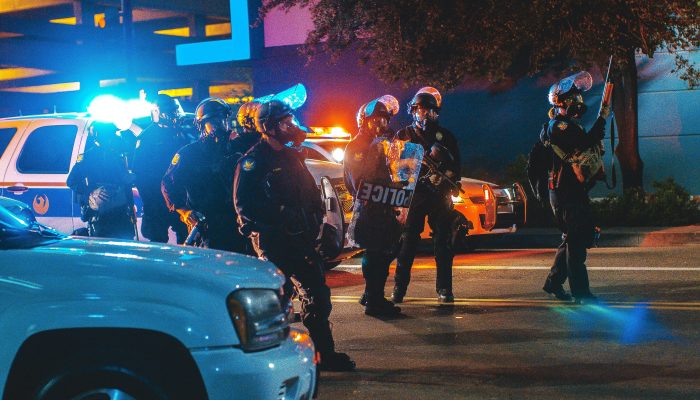ALTOONA, Iowa — Whitney Smith McIntosh adjusts her Blue Lives Matter hat and Blue Lives Matter shirt, places her Blue Lives Matter flag in the holder next to her door, and shoos her dog away from her “Kim Reynolds for Governor” yard sign.
The community activist and mother of three speaks of her family’s history. Her mother immigrated from Sicily at age 4. Her father’s side can be traced to people who were enslaved on a South Carolina plantation.
She fondly remembers her paternal grandfather: one of the first Black police officers in Pittsburgh. Nearly everyone in her father’s family worked in law enforcement or the military, she says, which instilled in her a deep reverence for those on the force.
“My grandad would come home, take off his gun belt, hang it on the nail and start cooking dinner,” she said, recalling a story her father told her.
That family history inspired her in the summer of 2020. As fellow Iowans poured onto the streets to the rallying cry of “Black lives matter,” she connected with a man named Robert Gamble on Facebook. The two later co-founded America Backs the Blue: Iowa, which organized pro-police rallies, coordinated lobbying days at the Iowa State Capitol and sent police officers care packages that included thank you cards and sandwiches.
“I was getting really sick of police officers being blamed for people being stupid,” Smith McIntosh said.
Neither she nor Gamble work in law enforcement, but their efforts exemplify a trend in American politics. Since cries for police reform roiled the U.S. in 2020, 16 state legislatures have enacted so-called “Back the Blue” laws to bolster law enforcement, according to data collected by the National Conference of State Legislatures. In the previous four years, five states had enacted such legislation.
In various states, lawmakers have reclassified law enforcement as a protected class under hate crime statutes, restricted local government efforts to defund the police, increased limits and penalties for protest-related crimes, limited the filming of police officers, and granted officers more rights during misconduct investigations. States have enacted Back the Blue laws for decades, but such moves have increased in the past two years to counter calls for police reforms.
Read the full story at NonDoc.

